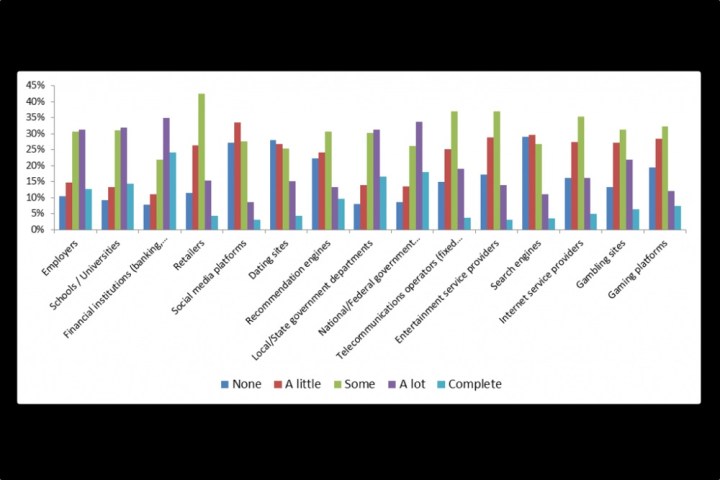
According to a survey conducted by Intercede and Atomik Research, of approximately 2,000 millennials in the U.S. and U.K., there is a “widespread state of mistrust” of current government and business security measures online. In fact, although it seems that users have a tendency to voluntarily over-share large amounts of personal information, 61 percent of respondents described their trust levels as “none” or “a little” when it comes to the protection of personal data on social media platforms.
While this data is likely unsurprising, it is interesting that 55 percent of those surveyed also rated their trust in dating sites as “none” or only “a little.” Despite security breaches such as Ashley Madison’s recent data hack of over 36 million members’ information, it seems some millennials trust their personal data with dating sites more than they do with social media platforms such as Twitter and Facebook.
We might wonder then, why we continue to share and voluntarily provide personal information to sites and businesses that most of us don’t trust. It isn’t because cyber security isn’t important. “Millennials are hungry for change,” says Lubna Dajani, communications technology expert. “This is by no means an apathetic generation. If business and government leaders don’t adopt better protocols now, millennials will soon rise up and demand it.”
Of survey respondents, 58 percent consider secure social media content to be “very important” or “vital.” However, 23 percent of all respondents admitted sharing personal data simply because they figure companies and governments are going to get the information whether they grant access or not. Although no category fared extremely well with millennials, websites receiving the highest numbers of respondents expressing “complete” trust include federal/national government, schools, financial institutions, and surprisingly, gaming platforms.
Editors' Recommendations
- More status options coming to Twitter, including ‘don’t @ me’
- Yes, Twitter is down right now, and we don’t know when it’ll be back
- Instagram exploring new profile grid offering greater personalization
- TikTok isn’t paying its biggest stars, but they don’t really care
- Don’t be like Pierre Delecto. Here’s how to keep your Twitter account a secret

